
Dermot Mulroney is the kind of Hollywood presence that doesn’t need to announce himself. With a career spanning over three decades, he has evolved from rom-com royalty to one of the most versatile actors working today—effortlessly navigating indie dramas, studio thrillers, and prestige television. Whether it’s Scream VI, Secret Invasion, Anyone But You, or his commanding performance as Battalion Chief Dominick “Dom” Pascal in Chicago Fire, Mulroney brings a distinct gravity and charm to every role. But beyond the screen, he’s also a classically trained cellist, a fashion minimalist with an eye for timeless elegance, and a grounded artist navigating the ever-changing entertainment landscape with humility and wisdom. In this exclusive interview with Dimitri Vorontsov, Dermot Mulroney opens up about his recent projects, evolving creative process, and the surprising ways he finds balance in a business that never slows down.
L’OFFICIEL FASHION BOOK AUSTRALIA x DERMOT MULRONEY
Talent: Dermot Mulroney @dermotmulroney
Photographer/Creative Director: Mike Ruiz @mikeruizone
Editor-in-Chief: Dimitri Vorontsov @dimitrivorontsov
Magazine: L’Officiel Fashion Book Australia – @lofficielfashionbook
Stylist: Christopher Campbell @mrchriscampbell
Stylist’s Assistant: Casey McClellan
Groomer: Nathaniel Dezan @nathanieldezan
Graphic Designer: Daniel Alarcon @by_danalarcon
Dimitri: You’ve had an exciting lineup of recent projects. Can you walk us through what you’ve been working on lately?
Dermot Mulroney: Yeah. I finished Chicago Fire, our NBC show. So it’s an incredible season there as a firefighter, the new chief in town, etc.. That was amazing. But even at the end of Chicago Fire, I started doing the post-production sound looping, ADR on a couple of movies that I had completed previously. Some of them I’ll appear in a key role. So these would be, that are saving the film industry. You might not even end up hearing about some of them, but they’re made for an audience that’s global. It might be in a niche or in a distant streamer universe somewhere. But those are the movies that have kept our industry alive. Around the country. A lot of them are shooting here and there, I’ll title a few of them to look for in the coming months. One of them I have there’s a release date late September for a western called Long Shadows. William Shockley directed it. He the actor. And it’s getting great notices and even some awards attention at film festivals, I’m sure it’ll have a nice small release with probably not nearly enough promotion and marketing. But we put our hearts into that one and it came out great classic Western film. So look for that one. Okay, I made two, No, I won’t say they’re funny, but two horror movies, which is funny that they’re in the same genre and they have similar titles, they both at least have the name dead in it. So I guess that’s probably somebody told someone somewhere that if you put dead in the title, you’ll do better business.
Consequently, I have two horror films that I’ve completed. One’s called Dead of Night, and that’s more maybe of a potboiler. Who’s who’s the bad killer in town? And father daughter story. The daughter’s investigating the local murders for the paper, etc., so that one goes south fast, and then dead and breakfast of wonderfully weird movie. Which is exactly what you think it sounds like. That’s the bed and breakfast you check into, but you don’t check out. So it’s one of those horror movies that, you know is just inevitable havoc and carnage. So stay tuned for that one. And a real favorite of mine that seems to be coming on. Got a notice today. You could look it up. That it got a nice distribution deal for a movie called Killing Mary Sue. The star of which is Sierra McCormick, is the young star who plays my stepdaughter, who’s messing up my senatorial campaign. And so Jake Busey, my campaign manager, and I cook up a plan to well, kill her so it doesn’t go well at all. The all the assassin teams are bumbling idiots, and turns out. Oh, yeah, I don’t want to give too much away, but she’s met her match with with Mary Sue, so that one’s really funny. Very strange and unique movie. So those are hard to come by, too. We actors all love that. Films that have an extra dose of imagination or just some unique thing. Sometimes the market doesn’t like something that’s new or edgy or off the beaten track. But I have a great gratitude for those filmmakers in that level, that small budgeted movies. Oh, there’s another one, Night Patrol with Justin Long that we finished. So so I’m happy to report. Yes, I’ve got some goods on the shelf that’ll be coming out before too long. And that’s the follow up. A couple of actually conventional, even studio aligned films working back from anyone but you. Thank you. Sydney, Australia and Sydney Sweeney, for that matter. And scream six before that. And and so I’ve had, I’ve had a good run here.
Dimitri: I’ve admired your work for years—it’s been incredible watching your journey on screen.
Dermot Mulroney: I know I’ve reached that age where the grown men who are you graying themselves claim to have been kids when they first saw me, I don’t know. But it is an amazing feeling to have grown up with people or have people, frankly, watched me do the same. To have such a long running luck? I’m in a rare seat where I can really appreciate all the variety of different things I’ve done, the people that I’ve come by that and people have lifted me up. And obviously I try to do the same working with young actors who recently. So many of the films I even mentioned, amazing young actors coming up, including that cast of Anyone but You. So it’s been a wonderful stretch for me here as I reached the age where I’m working with younger people who really they don’t know it, but I’m actually vampiring all of their youth energy. I hope they’re okay with that. That’s been my plan for about ten years. I’m like, I’m going to take some of that youthful exuberance. And, you it’s been a good plan.
Dimitri: You’ve seamlessly moved between heroic roles and more morally ambiguous characters. What’s your approach to embracing that versatility?
Dermot Mulroney: Yeah, very much these days. Again, at this in this age grouping, I seem to be able to do both. All of us could do both. I get that card sometimes. I’m thrilled when it switches back and forth. Even that killing Mary Sue is a little bit of both combined. Like crazy chaotic humor and you and some pretty, pretty brutal violence and murderous intent. So some of those films are a great mix for me a lot of times, because I can still fool people, or the filmmakers would want to use me to misdirect, let’s say and then turn out to be the bad guy or vice versa. That role on Chicago Fire worked on the opposite. I was never evil, but I was definitely my character was in question by the viewing audience until he proved himself to him. So that’s that audience. Been there longer than I have. So the writers did a great job of turning that to them. And had a great season accordingly.
Dimitri: With the rise of streaming, filmmakers now have the opportunity to tell stories in longer, more flexible formats—something that wouldn’t have been possible 20 years ago under the old theatrical model. Series today can run 10, 15, even 20 episodes, allowing for a much deeper narrative experience. How do you view this shift from traditional 4-6 week theatrical runs to these expansive streaming-driven formats?
Dermot Mulroney: Well, you’re describing what happened is it broke into a third bubble with even, you could start it with watching cable instead of renting VHS tapes, but it really turned over when stream streaming came in, that you could either go to the theater or watch it at home, but now you can sit and watch it at home. You can watch anything at home, and you can watch anything at home for free with no compensation in success or anything like that for the creators, which, you obviously we were in dispute with the producers on our contract last year about issues surrounding that. But it’s a it’s really the Wild West. So those shows that are really high end, a lot of budget on them for high end streamers. There that’s a great way to tell a story, but it’s new where you’ll have eight episodes only and people can really it’s a really palatable amount of content for one long story, rather than tumbling on season after season. So the problem with that, though, is there’s fewer writers. Those become these empires of a producer who makes a bunch of shows and things like that. And it and it silos the industry. So there’s no growth pattern behind that. That one’s done one and done and gone. So actors can’t bank on a new contract next season and all that. Nor can, you all the crews. It’s, it’s a much more and it’s it’s become more fractured and more nomadic as production not only leaves the country, which has been much reported, but shifts around from state to state for us. So we’ll suddenly be working in parts of the country that never really had a film industry, because the state businessmen had the sense to change their tax status up to where they’re helping to foster film production in their areas. So it’s been wild. It’s you you get used to one thing. you or maybe you get to a certain age and you’re surprised at how much things changes and how long it’s been changing. And, I don’t know, it’s very fascinating right now. And obviously a lot of people, a lot of actors, friends of mine in my generation are really struggling because the opportunities, as much as it seems like there’s way more stuff to watch, opportunities are limited or opportunities with you deluxe Opportunities. A lot of people are. It’s hard to live off of a little. One job here, one job there. That’s always been the game for actor. And again, it you it it can be very difficult. And I think we’re in a very difficult stage.
Dimitri: Have you taken on producing roles in some of your projects, particularly in the independent film space?
Dermot Mulroney: Sometimes I might be lifted on as a producer. Yeah. Just to help get the film made and etc.. But I don’t as much as I love talking about film and breaking down the industry and all that, I don’t I’ve never really functioned in the capacity of arranging all the nuts and bolts that make a movie. Or basically the other type of producer is the one that originates the material and starts the foundation of putting together all the pieces money and and talent. So I function in between the cracks that way. Help friends step in for things. And But but no, I don’t act as a producer. Even if sometimes you have to think like, like one to get your acting job going.
Dimitri: That’s a very strategic way of looking at it.
Dermot Mulroney: You and to be strategic about it, rather than sitting and waiting, waiting, waiting. Because then you’ll be sitting and waiting.
Dimitri: Recently, there’s been talk of implementing tax penalties on productions filmed outside the U.S. In your view, could this impact the global filmmaking ecosystem in a meaningful way?
Dermot Mulroney: It’s impossible to tell wrong or right. It’s very clear. Whoever coming up with that slash and burn solution doesn’t understand the intricacies of the industry. From the ground’s eye view, the reason why I would say that it’s a little bit there’s other industries like us, but every time you make a film you’re engaging about 100 different industries. So we’re really like each film is a network of trades and of businesses, rental companies for the equipment, for the transport, for everything, building carpenters before you even get to finishing the script and putting people in costumes, etc. So you can’t paint that with a broad brush. It has to be a little more it would let me put it this way. It’d be more useful if it was smarter.
Dimitri: That’s an important point—and I completely see where you’re coming from.
Dermot Mulroney: You can quote me on that. Or if it was laid out better or strategically right now, that was a lump statement that made everybody go. What do you mean? So that’s the phase we’re at now. Hopefully there’s clarity soon. And and beyond that nobody knows. So we’ve been risk after risk. We’ve been slowed down by pandemic by a labor dispute where we were being exploited, and now this with self-inflicted economic implosion. I said everything that’s like exclamation points and question marks. It doesn’t seem like it’s a good time to do earth shattering restructuring?
Dimitri: Absolutely—and as you mentioned earlier, regions like Australia and British Columbia in Canada have long been major global production hubs. They’ve contributed significantly to the film and television industries for decades. Do you think it’s even feasible—or wise—for policies to try and sideline such key players in the global production landscape?
Dermot Mulroney: I know, I don’t see how that would work. Yeah. you it would have to be really intricately designed for that to be beneficial to anybody, including whatever broad stroke America First thinking goes behind that.
Dimitri: I understand the logic behind it, but I’m still trying to see how it could realistically be implemented. Tax incentives play a major role in production decisions, and you can’t simply replicate certain locations. If countries in Europe, Africa, or the Middle East are offering compelling incentives and suitable environments for filming, why penalize productions for choosing those options? It just doesn’t quite add up—I’m still trying to wrap my head around the reasoning.
Dermot Mulroney: Yeah. It’s not it’s not clear enough yet or thought out enough.
Dimitri: I completely agree with that sentiment.
Dermot Mulroney: But it’s at this moment it’s impossible to extricate talking about creating artwork. Yeah. And and political and atmosphere, they’re intricately interwoven right now. So it’s impossible to avoid that topic.
Dimitri: In the midst of industry-wide challenges—pandemics, labor strikes, economic uncertainty—how do you stay focused on creativity and forward momentum?
Dermot Mulroney: We’ll bring up in theory, it’ll help. Yeah. We know we’ll bring up a lot of resilient kids starting right now. They’re basically going to be left to their own defenses. So too bad for them. But hopefully it makes for strong adults in 25 years.
Dimitri: If you had the chance to give your younger self a single piece of advice—personal or professional—what would it be?
Dermot Mulroney: Yeah. What’s very much the first thing that occurred to me was wear more comfortable shoes. Because that you’re going to regret that the the choices you made in that department.
I would add more seriously to that – that without being too self-critical. I look back and feel like I could have told myself to take certain things more seriously. Just or maybe with a little more anyhow, as you age, you gain context and things feel. Yeah. I can’t really define it better than that. Just Yeah. I think I’m just so overwhelmed with gratitude now at this phase that I can’t believe I didn’t feel that way the whole time, which, of course I did, but now I really wear it on my sleeve. Yeah.


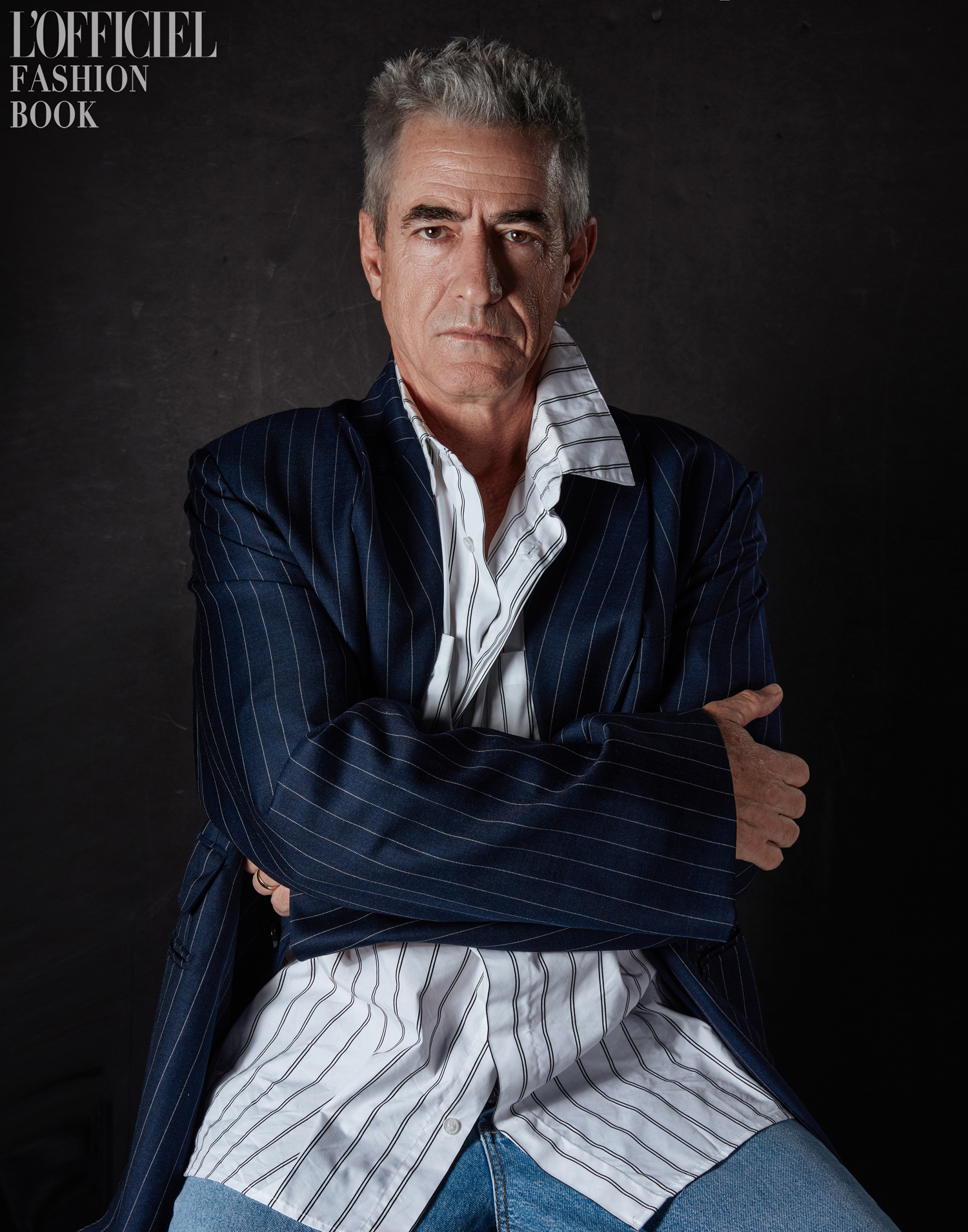
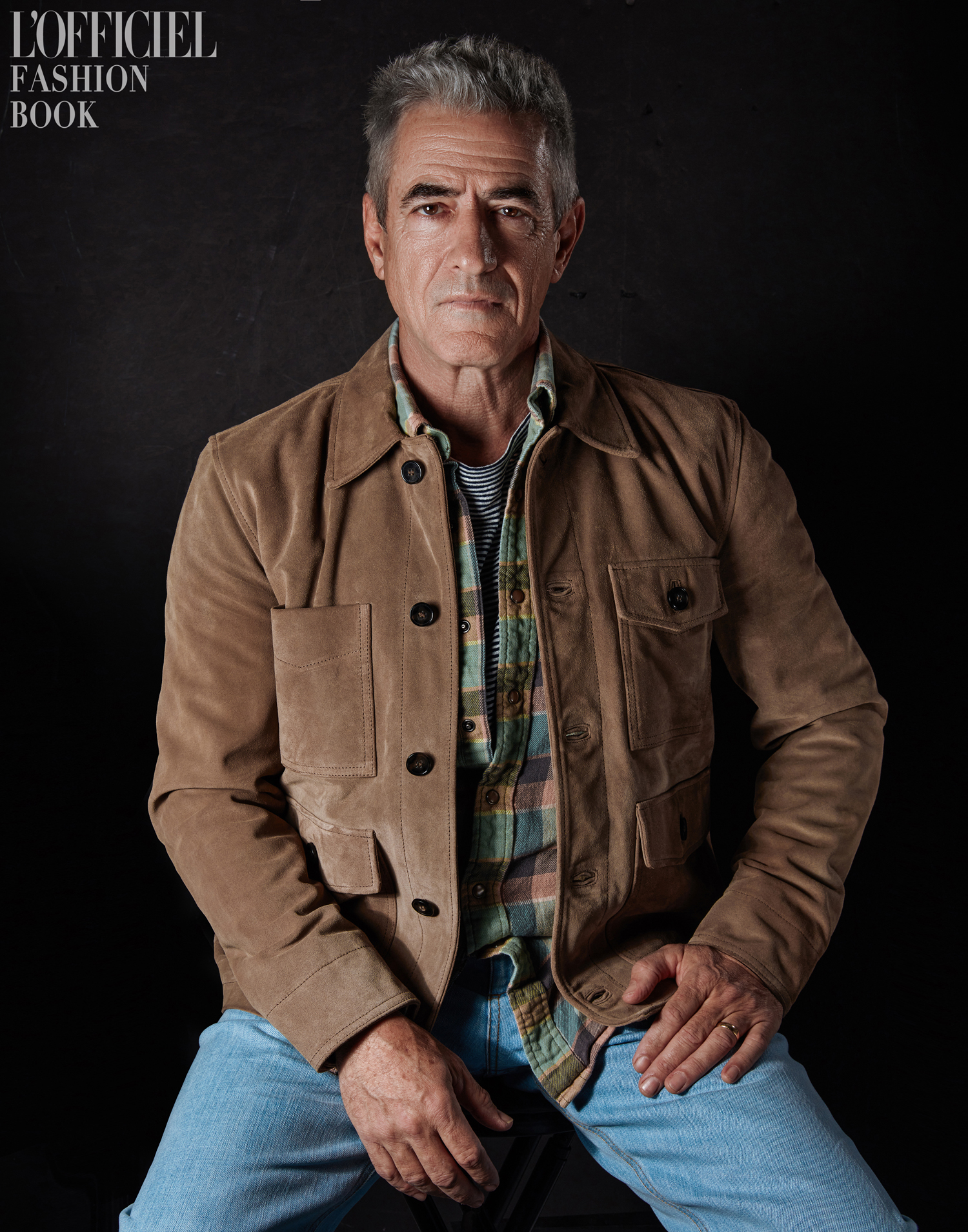
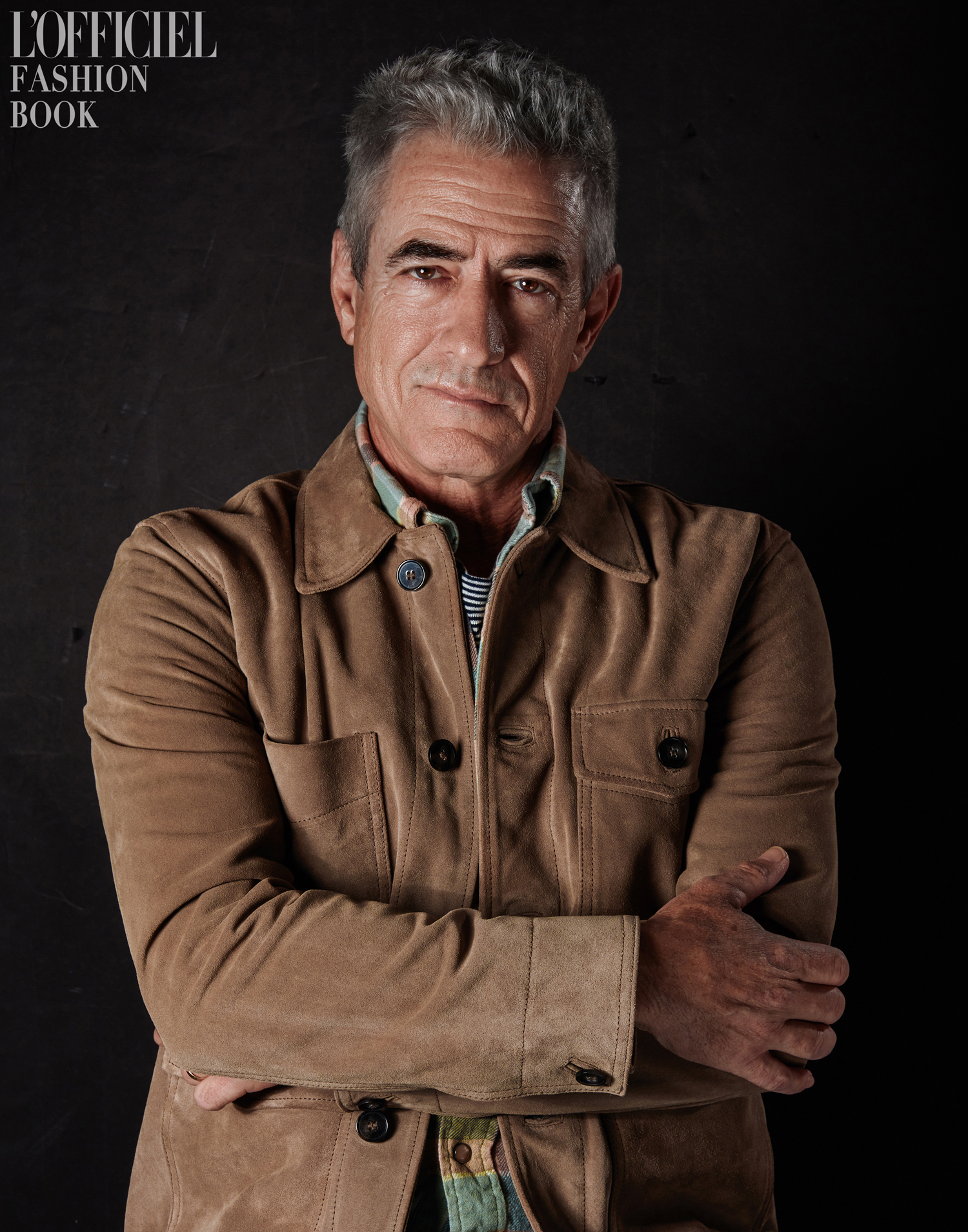
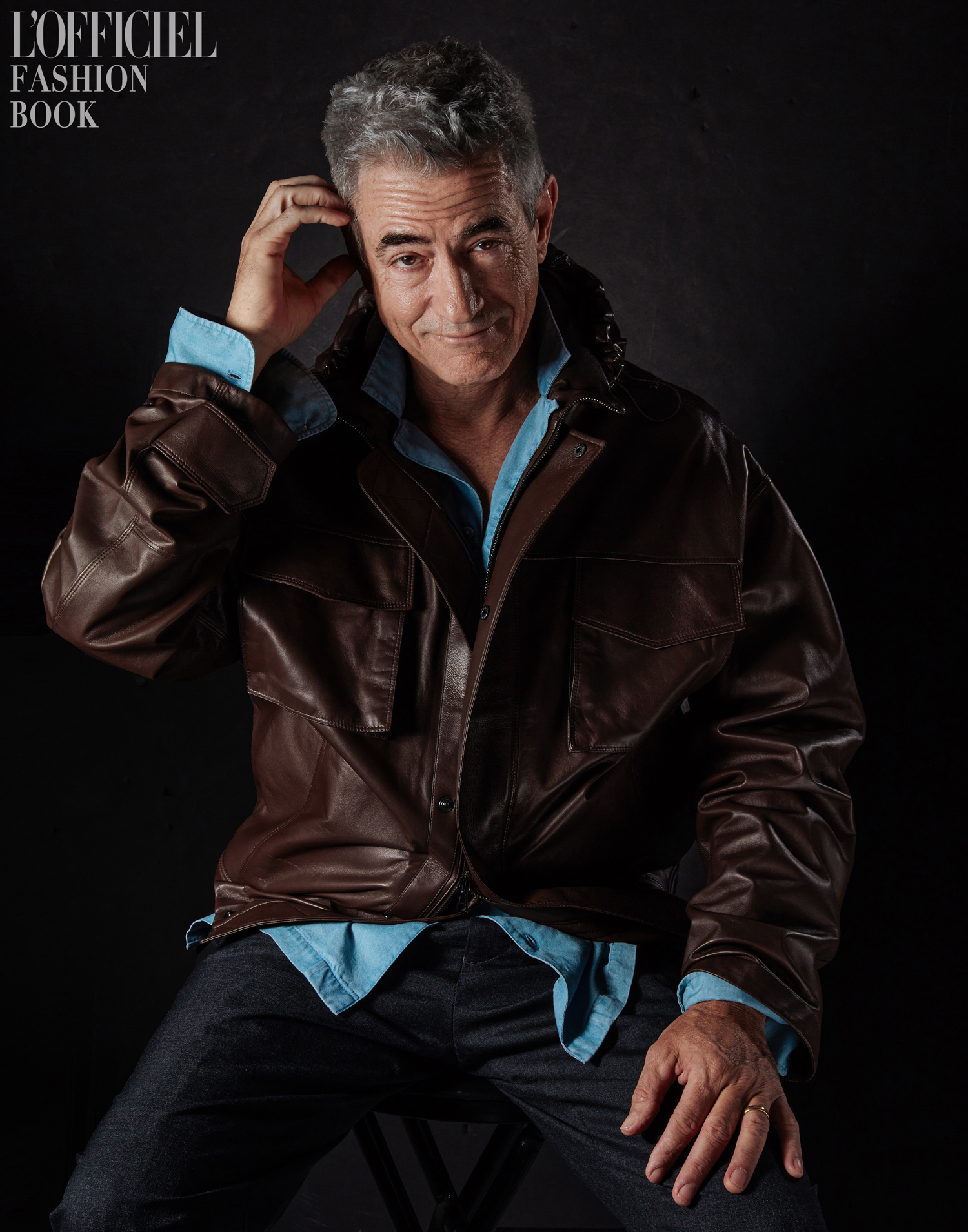

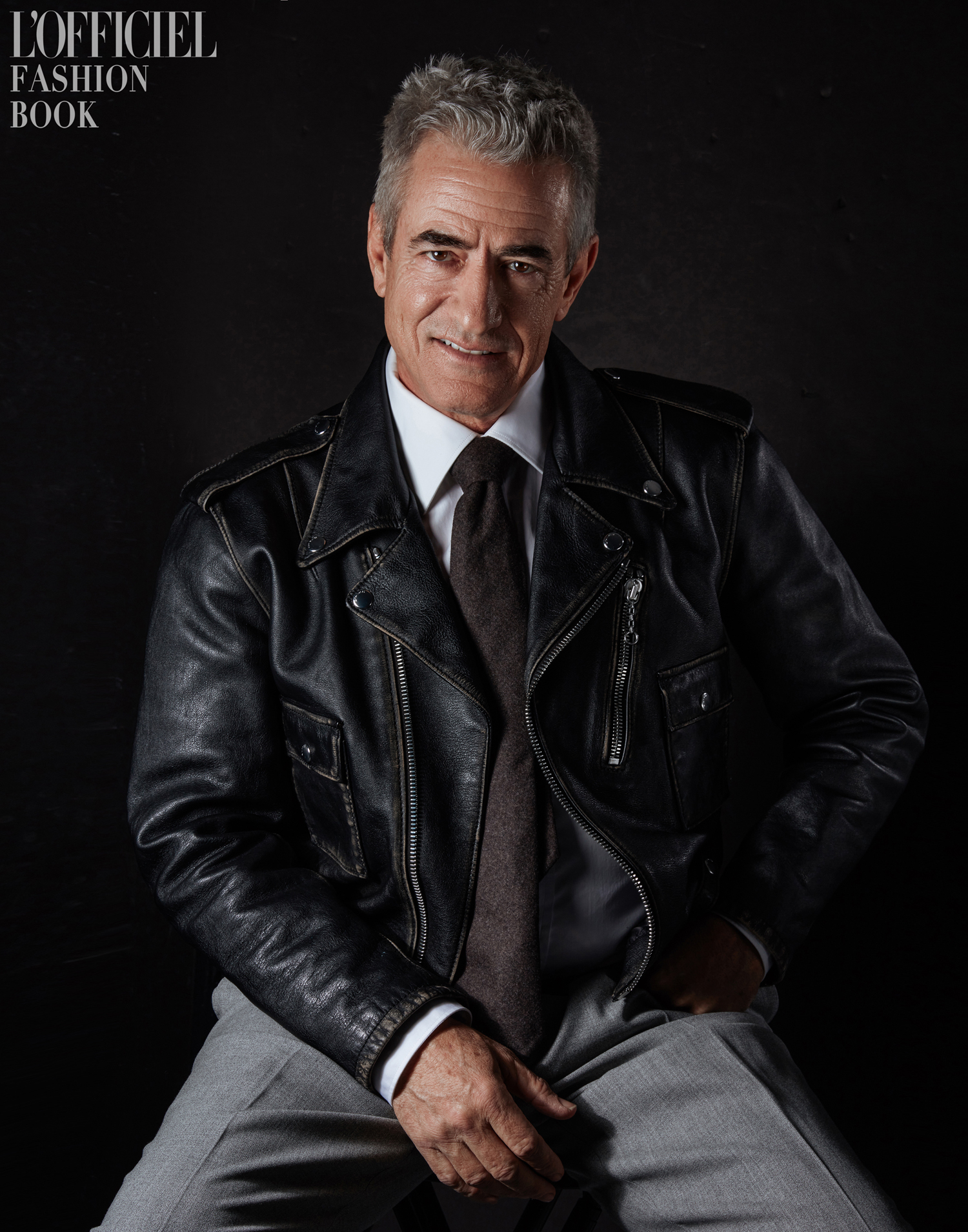
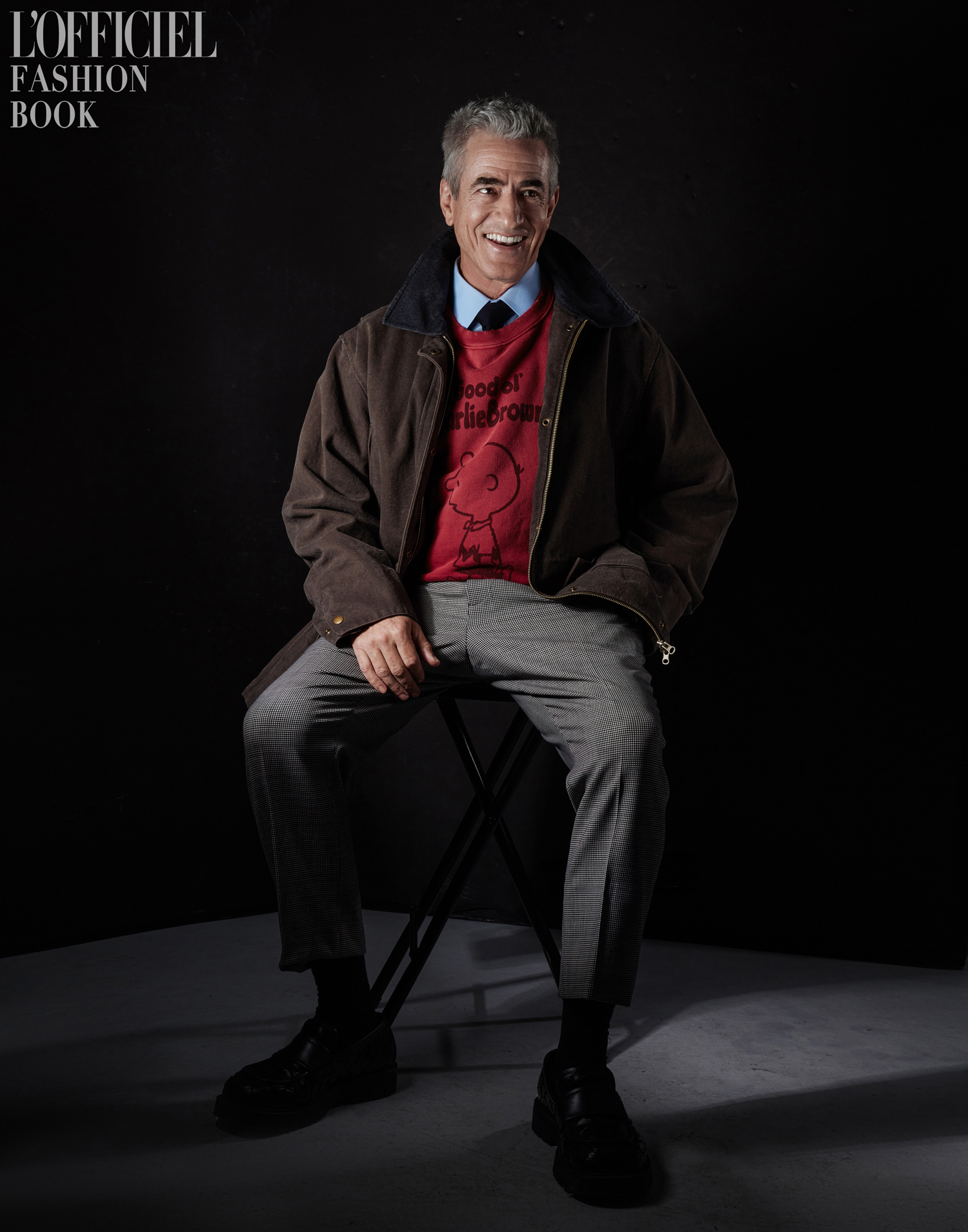
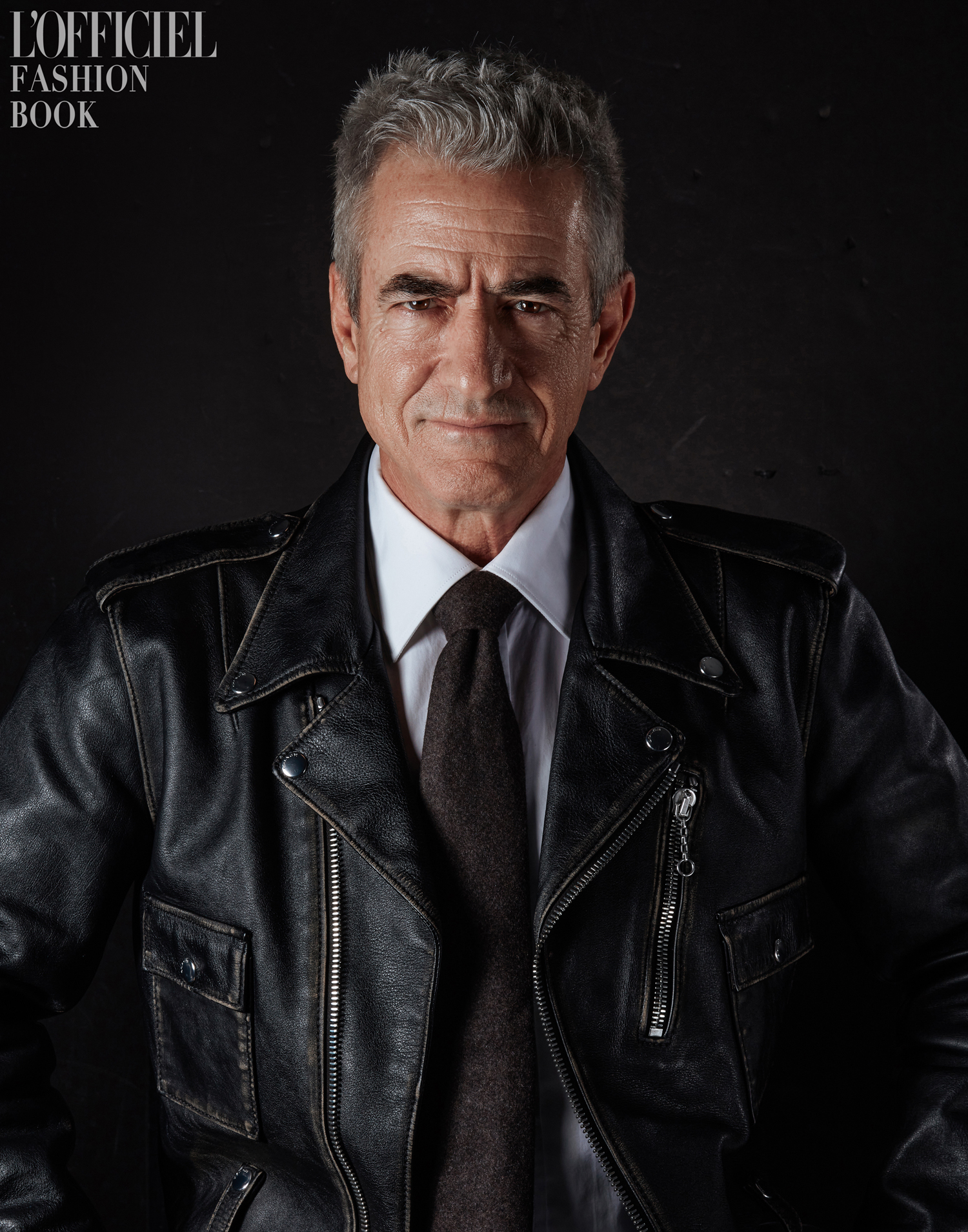
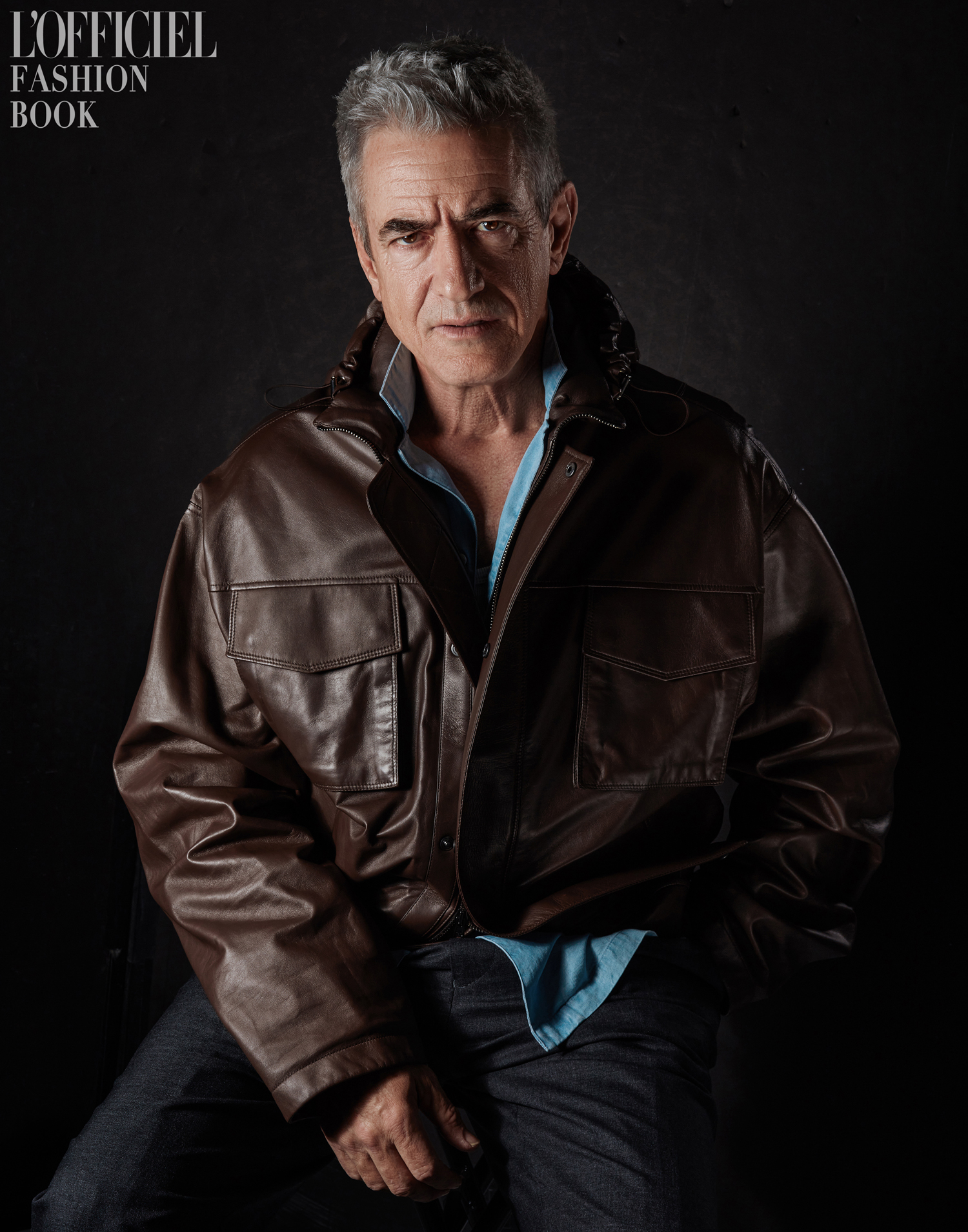
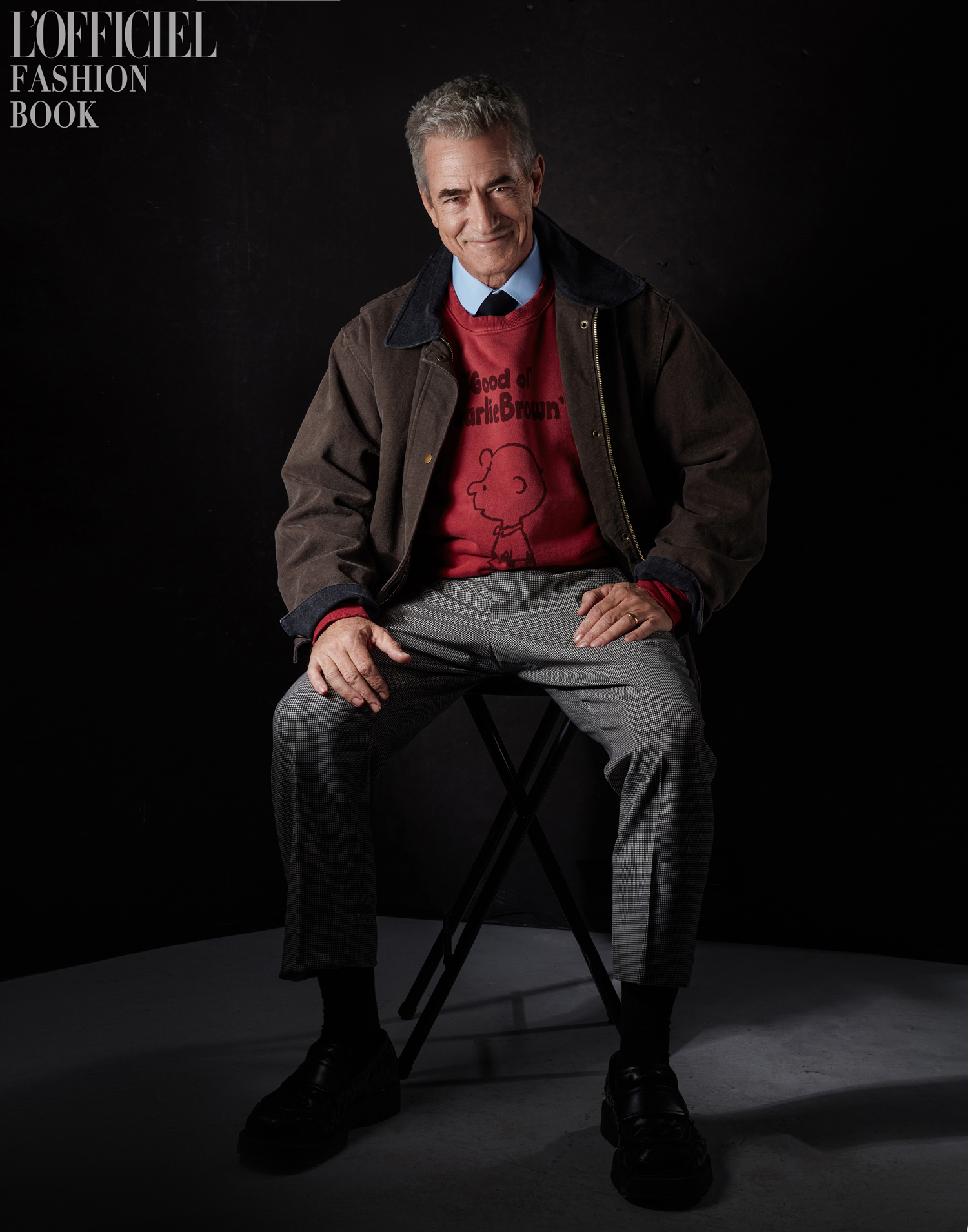




No comment yet, add your voice below!